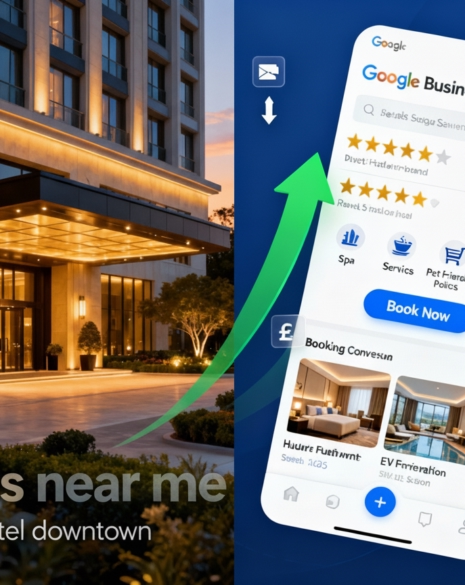Getting a new website done? Or about to?
Then read this—because one simple oversight could cost your hotel years of hard-earned digital visibility.
The warning signs were all there…
I was prepping for an initial meeting with a hotel group last week. As usual, I pulled up their SEO performance—organic traffic, keyword spread, visibility across search.
At first glance, things looked healthy.
Strong traffic growth. Good spread of keywords. Clear upward momentum.
Then I saw the drop.
A sharp, immediate cliff edge in their analytics.
Their monthly organic traffic had collapsed—8,000 visits down to virtually zero.
Keyword rankings? Gone.
Visibility? Disappeared.
So, what happened?
They’d just launched a new website.
And they’d done it without a redirect strategy.
Why this matters
When you launch a new website without properly mapping your old URLs to their new versions, Google can’t follow the trail. It essentially treats the new site as if it’s never existed before.
Your domain is the same.
But in Google’s eyes, it’s a blank slate.
That means:
- You lose the ranking positions your old pages had earned
- You break every link that pointed to your previous content
- You reset your authority and relevance from scratch
Years of SEO equity—gone overnight.
And that’s not just a visibility problem.
It’s a revenue problem. Because when people can’t find your hotel, they don’t book it.
The rise of drag-and-drop design—and the hidden risk
Building a good-looking website has never been easier.
With platforms like Webflow and Squarespace, and tools like Framer or Wix Studio, anyone with a decent eye for design can create something that looks impressive.
But not everyone who builds a beautiful website knows how to build a high-performing one.
Redirect strategy is one of those “under the bonnet” details that rarely makes it into pitch decks or design previews. And it’s almost never mentioned by agencies that aren’t deep in the hospitality space.
That’s a problem.
Because for hotels, your website isn’t just branding—it’s your storefront, your booking engine, your highest-margin channel.
If your SEO performance collapses, your OTA share creeps back up. Your cost per booking rises. Your revenue falls. It’s a domino effect.
So what should you do?
Before you sign off on any website project—or let your existing team go live with a new build—ask this one question:
➡️ “What is your redirect strategy?” ⬅️
If you get a vague answer, push harder.
If they don’t have one at all, pause the launch.
A proper redirect plan should include:
- A full URL audit of your current site
- A mapping process from old URLs to new ones
- Implementation of 301 redirects across all relevant pages
- Testing to ensure nothing breaks post-launch
This isn’t optional.
It’s the digital equivalent of forwarding your mail when you move house.
At Formula, we treat this as non-negotiable.
Every website we build starts with a longer-than-average planning phase for a reason. We don’t just design for beauty—we design for performance, visibility, and commercial growth.
Because a stunning website that no one can find is just an expensive piece of art.
Launching a new hotel website soon?
Before you do anything else, make sure your redirect strategy is watertight. Or get in touch—we’ll help you avoid the cliff.






